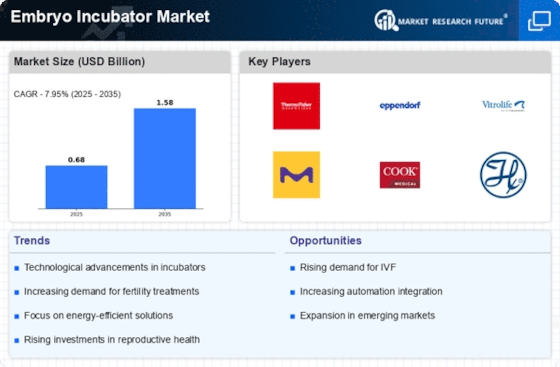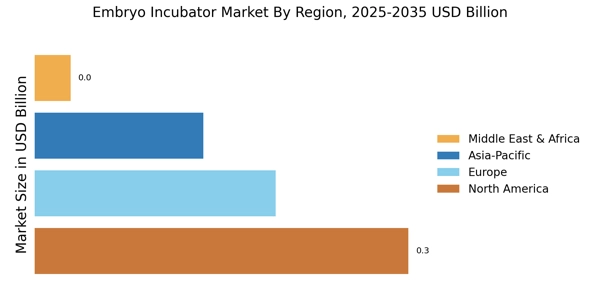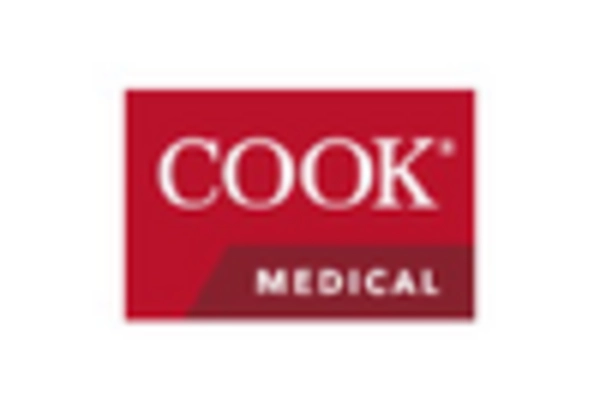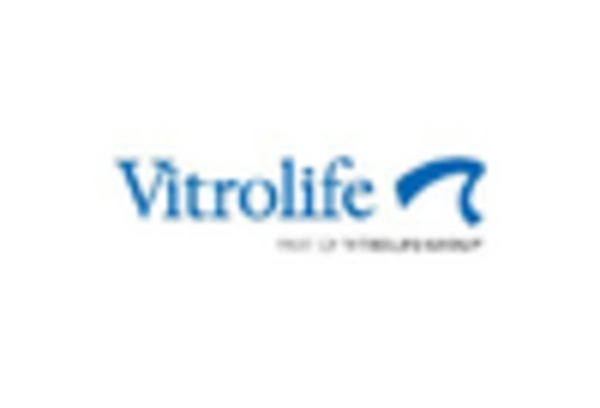Rising Demand for Fertility Treatments
The increasing prevalence of infertility issues among couples has led to a heightened demand for fertility treatments, thereby driving the Embryo Incubator Market. According to recent statistics, approximately 15% of couples experience difficulties in conceiving, which has resulted in a surge in assisted reproductive technologies. This trend is expected to continue, as more individuals seek solutions to their reproductive challenges. The growing awareness of fertility preservation techniques, such as egg freezing, further contributes to this demand. As a result, the Embryo Incubator Market is likely to witness significant growth, with manufacturers focusing on developing advanced incubators that cater to the specific needs of fertility clinics and hospitals.
Increasing Awareness of Reproductive Health
The growing awareness of reproductive health issues is significantly influencing the Embryo Incubator Market. Educational campaigns and public discussions surrounding fertility and reproductive health have led to a more informed population that actively seeks assistance when facing challenges in conception. This heightened awareness is driving individuals to explore various fertility options, including in vitro fertilization and other assisted reproductive technologies. Consequently, the demand for high-quality embryo incubators is on the rise, as clinics strive to provide the best possible care to their patients. The Embryo Incubator Market is likely to expand as more individuals prioritize their reproductive health and seek out advanced technologies to support their fertility journeys.
Technological Innovations in Incubator Design
Technological advancements play a crucial role in shaping the Embryo Incubator Market. Innovations such as temperature control, humidity regulation, and real-time monitoring systems have enhanced the efficiency and reliability of embryo incubation. The integration of artificial intelligence and machine learning algorithms into incubator systems allows for better predictive analytics, which can improve embryo selection processes. Furthermore, the introduction of user-friendly interfaces and remote monitoring capabilities has made these devices more accessible to healthcare professionals. As a result, the Embryo Incubator Market is experiencing a shift towards more sophisticated and automated solutions, which are expected to attract a broader range of users, including smaller clinics and private practices.
Growing Investment in Research and Development
Investment in research and development is a key driver of the Embryo Incubator Market. As the field of reproductive medicine evolves, there is a continuous need for innovative solutions that enhance embryo viability and success rates. Many companies are allocating substantial resources to R&D initiatives aimed at improving incubator technology. This focus on innovation is likely to lead to the development of next-generation incubators that incorporate advanced features such as enhanced imaging systems and improved environmental controls. The increasing collaboration between academic institutions and industry players further fuels this trend, as shared knowledge and expertise can accelerate the development of cutting-edge technologies. Consequently, the Embryo Incubator Market is poised for growth as new products emerge from these R&D efforts.
Regulatory Support for Assisted Reproductive Technologies
Regulatory frameworks supporting assisted reproductive technologies are instrumental in shaping the Embryo Incubator Market. Governments and health organizations are increasingly recognizing the importance of fertility treatments and are implementing policies that promote access to these services. This regulatory support often includes funding for fertility clinics and research initiatives, which can enhance the availability of advanced incubators. Additionally, stringent quality standards and safety regulations ensure that only the most effective and reliable incubators are utilized in clinical settings. As a result, the Embryo Incubator Market benefits from a favorable regulatory environment that encourages innovation and investment, ultimately leading to improved patient outcomes.


















